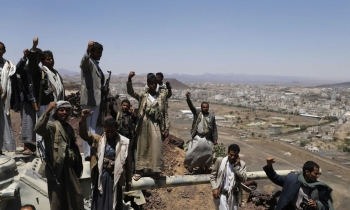The Afghanistan government has decided to close down the privately-owned TV station Emroz for allegedly endangering national unity and to ban two programmes on two other TV stations on the ground that they were contrary to Islamic values.
When it met on 27 July, the cabinet ordered the ministry of culture and information and the attorney-general to shut down Emroz, a station launched in August 2007 that is known for taking anti-Iranian and anti-Shiite positions.
Defending the decision, deputy culture and information minister Jalal Norani said it was important to “insist on national values and interests.”
Emroz owner Najibolah Kabuli described the station's closure as an “act of revenge by pro-Iranian pressure groups.” He said, “Since 2009, our station has been organising a series of demonstrations in various cities against Iran's anti-Afghan policies.”
“The government must not under any circumstances violate the media law, which gives the media commission sole decision-making authority when a media commits an offence,” Paris-based press freedom group Reporters sans Frontières (RSF) said. “We call on the government to rescind these decisions and never interfere in the content of Afghan TV stations again.”
“Media wars” are nothing new in Afghanistan. Media backed by different political parties and foreign countries have been waging a news and information war since 1998. Emroz and Shemshad on the one hand, and Tamadon, a station that supports Afghanistan's Shiite leaders, on the other, have been bitter rivals. The rivalry between the media reflects a battle for influence among the countries that support them, above all Iran and Pakistan.
Speaking on condition of anonymity in March 2009, a TV journalist told RSF, “In what country can a powerful neighbour fund three TV stations? Iran's influence has grown, but so has the influence of Pakistan and the United States.”
The cabinet also decided at its July 27 meeting to ban “Del and Nadel,” a programme broadcast by the privately-owned TV station Yak, and “Bazi Bakhat,” a programme broadcast by the privately-owned Tolo TV. Both programmes were accused of being “anti-Islamic.”
The Union of Afghan Journalists and NAI, a press freedom organisation, said in a joint statement said the cabinet's decisions “could be dangerous for freedom of expression.” While not defending the programmes and editorial policies of the three stations, they said it was the job of the media commission and it alone to determine whether a media was guilty of an offence and to take decisions affecting the media.
The charge of being anti-Islamic is one of the most common grounds for censoring media in Afghanistan. Although it lacks any precise definition, it is often used by the authorities to ban TV programmes, RSF pointed out.










